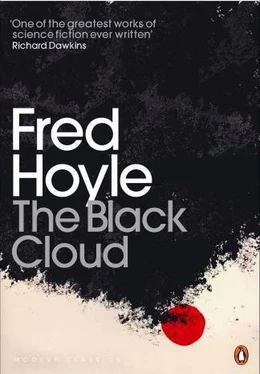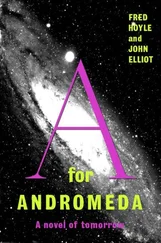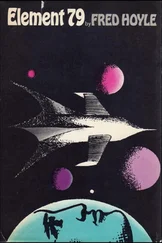Fred Hoyle - The Black Cloud
Здесь есть возможность читать онлайн «Fred Hoyle - The Black Cloud» весь текст электронной книги совершенно бесплатно (целиком полную версию без сокращений). В некоторых случаях можно слушать аудио, скачать через торрент в формате fb2 и присутствует краткое содержание. Жанр: Фантастика и фэнтези, на английском языке. Описание произведения, (предисловие) а так же отзывы посетителей доступны на портале библиотеки ЛибКат.
- Название:The Black Cloud
- Автор:
- Жанр:
- Год:неизвестен
- ISBN:нет данных
- Рейтинг книги:5 / 5. Голосов: 1
-
Избранное:Добавить в избранное
- Отзывы:
-
Ваша оценка:
- 100
- 1
- 2
- 3
- 4
- 5
The Black Cloud: краткое содержание, описание и аннотация
Предлагаем к чтению аннотацию, описание, краткое содержание или предисловие (зависит от того, что написал сам автор книги «The Black Cloud»). Если вы не нашли необходимую информацию о книге — напишите в комментариях, мы постараемся отыскать её.
The Black Cloud — читать онлайн бесплатно полную книгу (весь текст) целиком
Ниже представлен текст книги, разбитый по страницам. Система сохранения места последней прочитанной страницы, позволяет с удобством читать онлайн бесплатно книгу «The Black Cloud», без необходимости каждый раз заново искать на чём Вы остановились. Поставьте закладку, и сможете в любой момент перейти на страницу, на которой закончили чтение.
Интервал:
Закладка:
Kingsley was quite a lot younger than Parkinson had expected, perhaps thirty-seven or thirty-eight. Parkinson had visualized him as a tallish, slim man. In this he was right, but Parkinson had not expected the remarkable combination of thick dark hair with astonishingly blue eyes, astonishing enough in a woman. Kingsley was decidedly not the sort of person one would forget.
Parkinson drew a chair up to the fire, settled himself comfortably, and said:
“I have heard all about yesterday’s conversation between you and the Home Secretary, and may I say that I thoroughly disapprove of you both?”
“There was no other way in which it could end,” answered Kingsley.
“That may be, but I still deplore it. I disapprove of all discussions in which both parties take up positions of no compromise.”
“It would not be difficult to divine your profession, Mr Parkinson.”
“That may well be so. But quite frankly I am amazed that a person of your position should have taken up such an intransigent attitude.”
“I should be glad to learn what compromise was open to me.”
“That is exactly what I came here to tell you. Let me compromise first, just to show how it’s done. By the way, you mentioned tea a little while ago. Shall we put the kettle on? This reminds me of my Oxford days and all matters nostalgic. You fellows in the University don’t know how lucky you are.”
“Are you hinting at the financial support afforded by the Government to the Universities?’ grunted Kingsley as he resumed his seat.
“Far be it from me to be so indelicate, although the Home Secretary did mention it this morning as a matter of fact.”
“I’ll bet he did. But I’m still waiting to hear how I should have compromised. Are you sure that “compromise” and “capitulate” are not synonymous in your vocabulary?”
“By no means. Let me prove my point by showing how we’re prepared to compromise.”
“You, or the Home Secretary?”
“The Prime Minister.”
“I see.”
Kingsley busied himself with the tea things. When he had finished, Parkinson began:
“Well, in the first place I apologize for any reflections that the Home Secretary may have cast on your report. Secondly, I agree that our first step must be the accumulation of scientific data. I agree that we must go ahead as quickly as possible and that all those scientists who are required to make some contribution should be fully apprised of the situation. What I do not agree with is that any others should be taken into our confidence at the present stage. That is the compromise I ask from you.”
“Mr Parkinson, I admire your candour but not your logic. I defy you to produce one single person who has learned from me of the menacing threat of the Black Cloud. How many persons have learned from you, Mr Parkinson, and from the Prime Minister? I was always against the Astronomer Royal in his wish to inform you, because I knew you couldn’t keep anything really secret. By now I am wishing most heartily that I had overridden him.”
Parkinson was wrong-footed.
“But surely you don’t deny writing an extremely revealing letter to Dr Leicester of the University of Sydney?”
“Of course I don’t deny it. Why should I? Leicester knows nothing about the Cloud.”
“But he would have done if the letter had reached him.”
“Ifs and buts are the stuff of politics, Mr Parkinson. As a scientist I am concerned with facts, not with motives, suspicions, and airy-fairy nothingness. The fact is, I must insist, that no one has learned anything of importance from me in this affair. The real gossip is the Prime Minister. I told the Astronomer Royal that that’s the way it would be, but he wouldn’t believe me.”
“You haven’t very much respect for my profession, have you, Professor Kingsley?”
“Since it is you who wish for frankness, I will tell you that I have not. I regard politicians rather as I regard the instruments on the dashboard of my car. They tell me what is going on in the engine of state, but they don’t control it.”
Quite suddenly it flashed on Parkinson that Kingsley was pulling his leg and pulling it hard at that. He burst out laughing. Kingsley joined in. Relations were never again difficult between the two of them.
After a second cup of tea and some more general conversation Parkinson returned to the matter in hand.
“Let me make my point, and I am not to be fobbed off this time. The way you are going about collecting scientific information is not the quickest way, nor is it the way that gives us the best security, interpreting security in a wide sense.”
“There is no better way open to me, Mr Parkinson, and time, I need not remind you, is precious.”
“There may be no better way open to you at the moment, but a better way can be found.”
“I don’t understand.”
“What the Government wants to do is to bring together all the scientists who ought to be fully cognisant of the facts. I understand you have recently been working with a Mr Marlborough of the radio astronomy group here. I accept your assurance that you have given away no essential information to Mr Marlborough, but wouldn’t it be far better if arrangements to give him the information could be made?”
Kingsley remembered his initial difficulties with the radio astronomy group.
“Undoubtedly.”
“Then that’s agreed. Our second point is that Cambridge, or indeed any university, is hardly the right place to conduct these investigations. You are part of an integrated community here and you cannot expect to combine both secrecy and freedom of speech at the same time. You cannot form a group within a group. The correct procedure is to form an entirely new establishment, a new community specially designed to meet the emergency, and one that would be given every facility.”
“Like Los Alamos for instance.”
“Exactly so. If you will think fairly about it I think you must agree that no other way is really feasible.”
“Perhaps I should remind you that Los Alamos is situated in the desert.”
“There would be no question of your being put in a desert.”
“And where would we be put? Put , you know, is a charming verb.”
“I think you would have no cause for complaint. The Government is just finishing the conversion of an extremely pleasant eighteenth-century manor house at Nortonstowe.”
“Where is that?”
“Cotswolds, on high ground to the north-west of Cirencester.”
“Why and how was it being converted?”
“It was intended to be an Agricultural Research College. A mile from the house we have built an entirely new estate for housing the staff — gardeners, workpeople, typists, and so on. I said you would be given every facility and I can assure you most sincerely that I meant it.”
“Won’t the Agriculture people have something to say if they’re shot out and we’re moved in?”
“There’s no difficulty in that. Not everyone views the Government with quite the same disrespect that you do.”
“No, more’s the pity. I suppose the next honours list will take care of that. But there are difficulties you haven’t thought of. Scientific instruments would be needed — a radio telescope for instance. It’s taken a year to erect the one here. How long would it take you to move it?”
“How many men were employed to erect it?”
“Perhaps a couple of dozen.”
“We would use a thousand, ten thousand if need be. We would guarantee to move and re-erect any instruments you think necessary within some reasonable stated period, say within a fortnight. Are there any other large instruments?”
“We should need a good optical telescope, although not necessarily a very large one. The new Schmidt here in Cambridge would be the most suitable, although how you’d persuade Adams to give it up I can’t think. It’s taken him years to get.”
Читать дальшеИнтервал:
Закладка:
Похожие книги на «The Black Cloud»
Представляем Вашему вниманию похожие книги на «The Black Cloud» списком для выбора. Мы отобрали схожую по названию и смыслу литературу в надежде предоставить читателям больше вариантов отыскать новые, интересные, ещё непрочитанные произведения.
Обсуждение, отзывы о книге «The Black Cloud» и просто собственные мнения читателей. Оставьте ваши комментарии, напишите, что Вы думаете о произведении, его смысле или главных героях. Укажите что конкретно понравилось, а что нет, и почему Вы так считаете.












